Yerba Mate Health Benefits & Side Effects – Is Yerba Mate Dangerous?
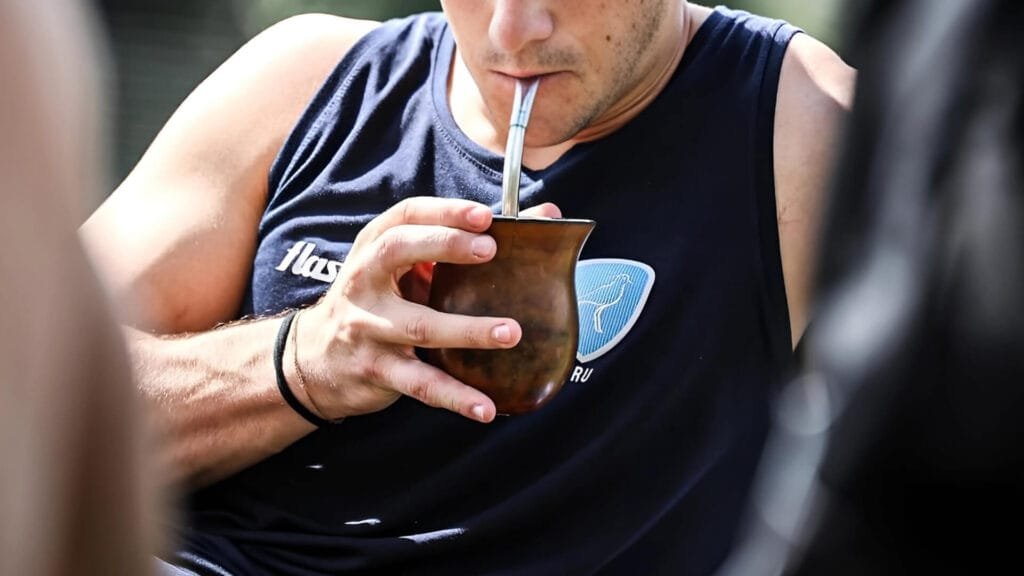
Many people ask: Is Yerba Mate dangerous? On this page, we break down its health benefits, nutritional content, and possible side effects. You'll also see how it compares to other popular drinks like coffee, green tea, and matcha — so you can decide if Yerba Mate is right for you.
Yerba Mate comes from the Ilex paraguariensis plant, native to South America. The leaves and stems are dried, ground, and steeped in hot water to create a traditional drink rich in antioxidants and natural caffeine. It has been consumed for centuries for its unique flavor and energizing properties.
For more info about what yerba mate is and where it comes from please check the link below.
Nutritional Value of Yerba Mate
The information we are going to discuss is based on the three most popular brewing formats, according to this research.

Yerba Mate Tea Bag (Hot)
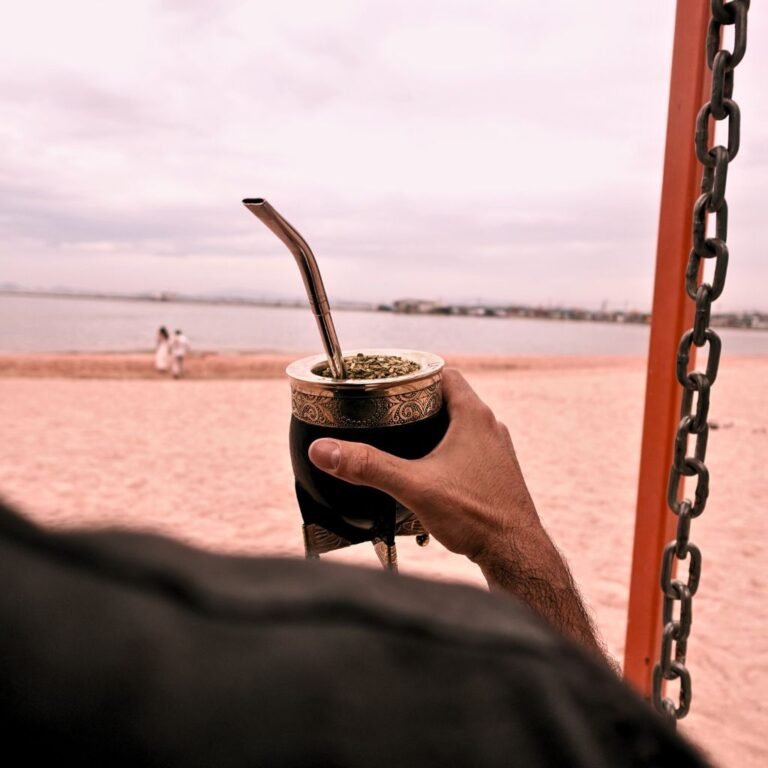
Yerba Mate Traditional (Hot)
50g of yerba mate prepared in a gourd with 500ml of hot water (70-75°C)
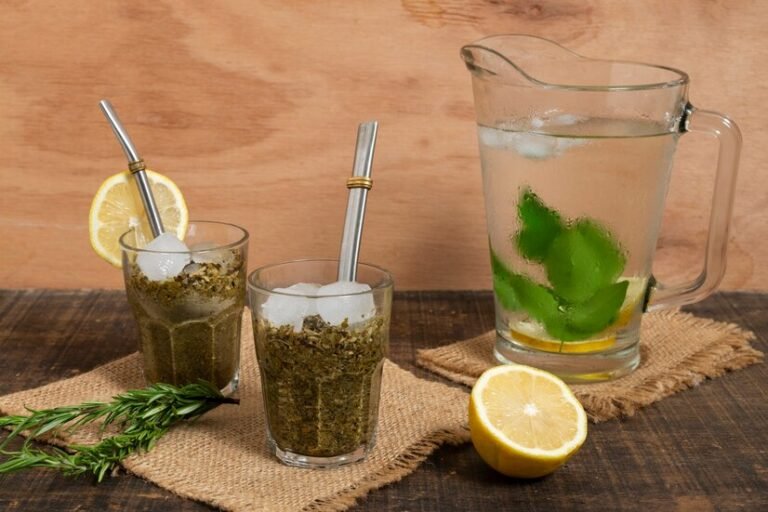
Yerba Mate Tereré (Cold)
Similar to the traditional method but with cold water (10°C)
Macronutrients
Yerba mate is a 100% natural product, low in calories and carbohydrates (without any added sugar), while providing essential nutrients and a moderate caffeine boost.
| Yerba Mate Traditional (50gr) | Yerba Mate Tereré (50gr) | Yerba Mate Tea Bags (3gr/cup) | Coffee (2g/cup) | Matcha (2g/cup) | |
|---|---|---|---|---|---|
| Calories | ~20-40 kcal | ~15-35 kcal | ~2 kcal | ~1 kcal | ~3-5 kcal |
| Carbs | ~9g | ~8g | ~0g | ~0g | ~1g |
| Protein | - | - | - | - | - |
| Fats | - | - | - | - | - |
Like coffee or green tea, yerba mate is a good option for fasting or keto diets. However, drinking yerba mate the traditional way (or Tereré) may have to more calories compared to coffee or matcha due to the amount needed to prepare the drink.
Note: these values are estimates. For precise macronutrient content, refer to the packaging of each brand.
Vitamins & Minerals
Yerba mate provides a notable source of B vitamins, particularly B1 (Thiamine) and B6 (Pyridoxine), making it a great choice for supporting your metabolism and nervous system. It also offers a modest amount of essential minerals, with magnesium standing out among them.
Coffee and matcha are not included in this comparison, as they don't contain significant amounts of vitamins and minerals (similar to yerba mate teabags) because they are consumed in much smaller quantities per cup (2-3g).
| Yerba Mate Traditional (50gr) | Thai RDI | Yerba Mate Tereré (50gr) | Thai RDI | |
|---|---|---|---|---|
| Potassium (K) | 50mg | 1.43% | 20.82mg | 0.59% |
| Magnesium (Mg) | 29mg | 8.29% | 16.59mg | 4.74% |
| Calcium (Ca) | 40mg | 4.00% | 21.95mg | 2.20% |
| Phosphorus (P) | 23mg | 2.30% | 10.64mg | 1.06% |
| Iron (Fe) | 1mg | 4.55% | 0.55mg | 2.50% |
| Sodium (Na) | 7mg | n/a | 5.54mg | |
| Thiamine (B1) | 0.74mg | 61.67% | 0.08mg | 6.67% |
| Niacin (B3) | 0.64mg | 4.00% | - | |
| Pyridoxine (B6) | 0.47mg | 36.15% | - | |
| Vitamin C | 2.6mg | 2.60% | 1.18mg | 1.18% |
Summary
- Hot brewing is more effective in extracting vitamins and minerals than cold brewing.
- Yerba mate is high in vitamins B1 and B6.
- Although yerba mate contains a lot of vitamins and minerals, caffeine can reduce its absorption.
Yerba Mate: Energy, Focus, and Performance
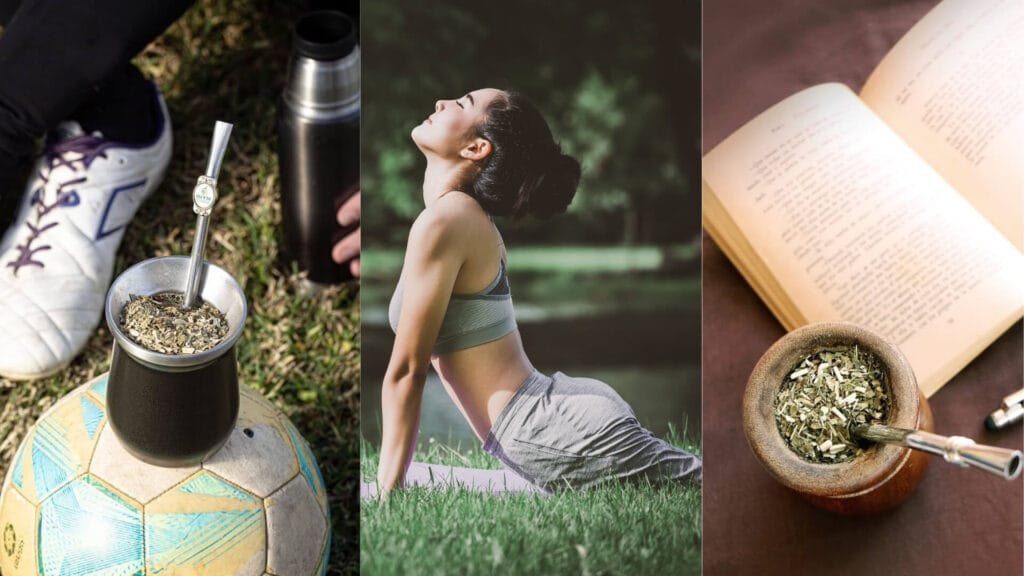
Yerba mate is a unique natural stimulant that enhances energy, mental focus, and physical endurance. Unlike coffee, which delivers a quick spike in caffeine, yerba mate provides a smoother and longer-lasting boost due to its combination of caffeine, theobromine, vitamins and antioxidants.
In South America, many people enjoy yerba mate before sports, at work, or while studying, relying on its balanced energy boost to stay sharp and perform at their best.
Stimulants in Yerba Mate
- Caffeine: The most abundant stimulant in yerba mate. As we know, it increases alertness, energy, and concentration.
- Theobromine: Also found in chocolate, it provides a calming sense of well-being while promoting mental clarity.
- Theophylline (trace amounts): A mild bronchodilator, but not a major contributor to yerba mate’s effects.
This combination energizes the body without the jittery crash often linked to coffee, especially if you drink Yerba Mate the traditional way where you are refilling the cup several times slowly extracting the caffeine and other nutrients.
How Much Caffeine Is In Yerba Mate?
Yerba mate's caffeine content varies based on factors like growing conditions, processing, and brewing methods. For example, shade-grown plants have less caffeine, and drying techniques can affect both caffeine and antioxidant levels.
The following estimates come from a study on Argentine yerba mate brands. For exact caffeine content, check the manufacturer's details.
| Type of Drink | Caffeine Content (mg) |
|---|---|
| Yerba Mate Traditional (50gr) | 350–450 mg |
| Yerba Mate Tereré (50gr) | 200 mg |
| Yerba Mate Tea Bags (3gr/cup) | 20–40 mg |
| Coffee (2g/cup) | 60–80 mg |
| Matcha (2g/cup) | 25–45 mg |
- Yerba mate Tea Bags have caffeine levels similar to matcha.
- Traditional and Tereré provide significantly more caffeine due to repeated refilling and higher overall consumption of tea.
- Compared to matcha, yerba mate does not contain L-theanine (the compound in green tea that causes relaxation), so drinking it leaves you feeling more alert.
- Compared to coffee, yerba mate offers a smoother, more sustained energy boost, avoiding the jitters often associated with high caffeine. This is especially true when prepared traditionally, allowing for gradual caffeine extraction through multiple refills.
Yerba Mate Antioxidants: Higher Than Green Tea?
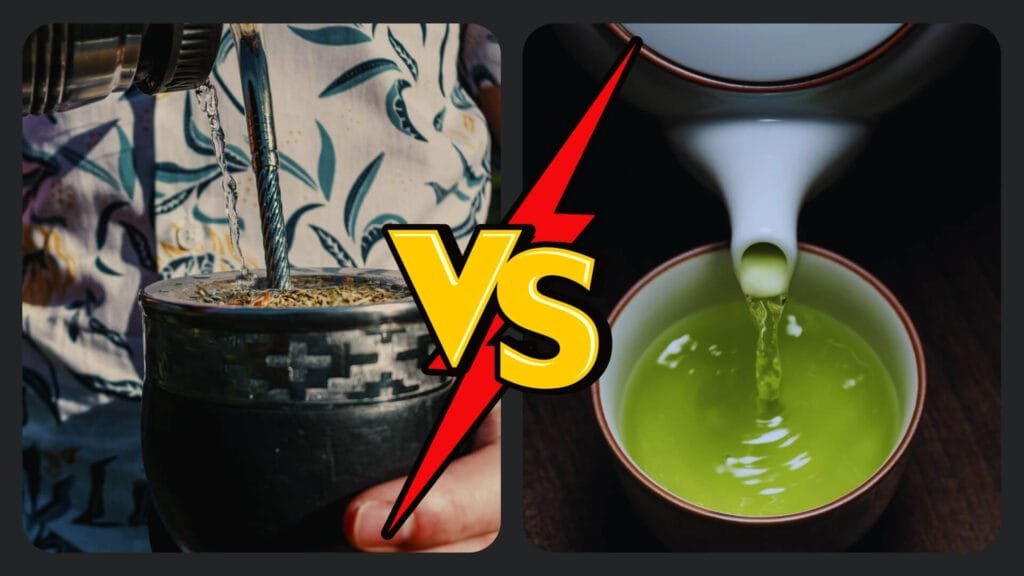
Yerba mate contains a powerful blend of antioxidants that help combat oxidative stress, protect against cancer and inflammation, supporting overall health. While green tea has long been considered the king of antioxidants, how does yerba mate compare?
The primary antioxidant in Yerba Mate is chlorogenic acid, along with dicaffeoylquinic acid. These compounds have strong anti-inflammatory and cardiovascular benefits. While Green Tea is rich in catechins, especially epigallocatechin gallate (EGCG), which are known for their metabolism-boosting and anti-cancer properties.
Yerba Mate vs Green Tea
A study measuring total polyphenol content (TPC) (natural antioxidants in food) found that “yerba mate contains more TCP than green tea”:
| Type of Drink | Polyphenol Content (mg/100 ml) |
|---|---|
| Yerba Mate Traditional (Hot) | 586 mg |
| Yerba Mate Tereré | 220 mg |
| Green Tea Bags (2-3 gr) | 217 mg |
| Yerba Mate Tea Bags (2-3 gr) | 150 mg |
This suggests that hot yerba mate has nearly three times the polyphenols of green tea!
However, the way the study was conducted raises some important considerations.
Yerba mate Traditional (Hot) was tested using 30-50g of yerba mate, while green tea was tested using only 2-3g per tea bag. This creates a possible bias because If green tea were tested using 30-50g of leaves, its total antioxidant content might be much higher.
Summary
- Both yerba mate and green tea offer significant antioxidant benefits. While studies may sometimes suggest yerba mate has a substantial edge in polyphenol content, this can be influenced by testing methodologies. A fairer comparison would involve using equivalent amounts of dry leaves for both beverages.
- For maximum antioxidant intake, traditionally prepared hot yerba mate is one of the best choices. Green tea, however, is a great alternative. Why not enjoy both? You can mix yerba mate with any herb, including green tea, for a unique mix of flavor and antioxidants!
Does Yerba Mate Help with Weight Loss?
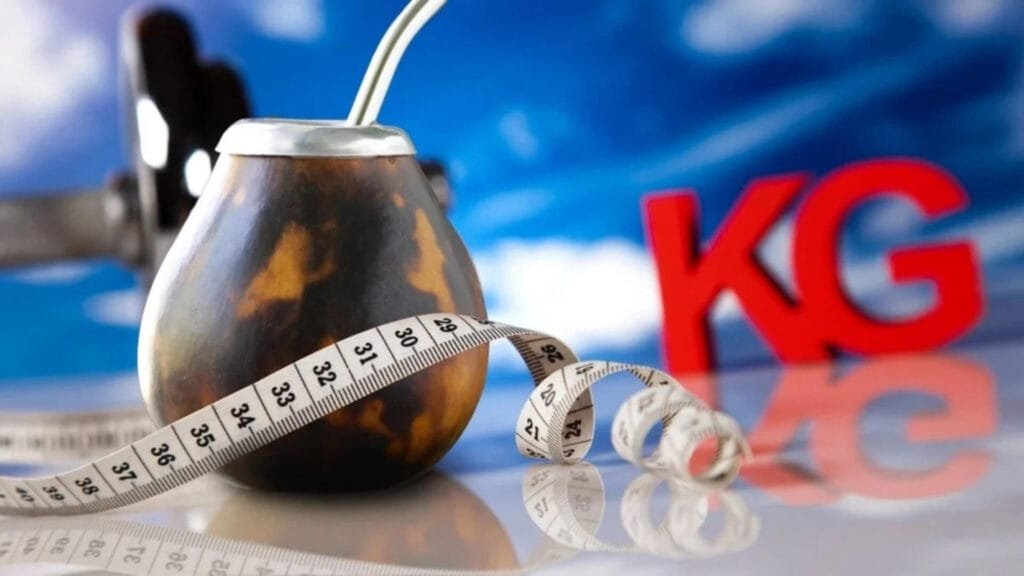
In Thailand, several products with yerba mate promote weight loss, and while yerba mate alone won’t directly make you shed kilos, it can be a helpful addition to a healthy diet and active lifestyle.
Research shows that yerba mate can support weight management in two key ways.
Decreasing Hunger
Yerba mate can help curb appetite, making it easier to control food intake. One study suggests that it increases satiety hormones like GLP-1 and slows down gastric emptying, which helps you feel fuller for longer
In summary, people who consumed yerba mate had reduced hunger and a lower desire to eat both during and after exercise.
This mechanism is similar to how Ozempic (Semaglutide) works. Semaglutide is a GLP-1 receptor agonist, meaning it mimics the natural hormone glucagon-like peptide-1 (GLP-1) to regulate appetite and blood sugar levels. While Ozempic is a pharmaceutical treatment specifically designed for diabetes and weight loss, yerba mate provides a natural way to stimulate GLP-1—though with milder effects compared to prescription medications.
Also to note that besides increasing GLP-1, if you are drinking yerba mate the traditional way you will be consuming a lot of liquid which will keep you full for a long time.
Increasing Fat Oxidation
Yerba mate has thermogenic properties that enhance fat burning. Research shows that consuming yerba mate before exercise can increase fatty acid oxidation by about 23%, helping the body use fat as a fuel source. Another study on high-fat diet-induced obese mice found that yerba mate reduced body fat, improved cholesterol levels, and regulated genes linked to metabolism.
Summary
- Yerba Mate can be helpful in your weight loss journey but it wont do magic, its is an addition to a healthy diet, not a replacement
- Ozempic is a popular new drug that helps you be less hungry. Yerba Mate can have a milder effect by also reducing your appetite in a natural way while also increasing fat oxidation.
Even more benefits
Beside the all the health benefits we talk about, yerba mate can also:
- Helps regulate blood sugar: Yerba Mate may improve insulin sensitivity and reduce blood sugar spikes, making it a potential ally for managing diabetes or maintaining steady energy levels throughout the day.
- Lowers cholesterol: Studies suggest it can reduce LDL ("bad") cholesterol levels while boosting HDL ("good") cholesterol, supporting heart health with every sip.
- Neuroprotective against Parkinson’s: Its rich antioxidant content, particularly compounds like polyphenols, might shield brain cells from damage, potentially lowering the risk of neurodegenerative diseases like Parkinson’s.
- Increases bone density: Research shows it may enhance bone mineral density, even in postmenopausal women, offering a natural way to strengthen bones and combat osteoporosis.
Is Yerba Mate Addictive?
Yerba mate contains caffeine, which can lead to mild dependency, similar to coffee or tea. Some people may experience withdrawal symptoms like headaches or fatigue if they stop drinking it suddenly. However, it does not cause severe addiction or withdrawal like stronger stimulants or opioids.
How Does It Compare to Kratom?

Kratom and yerba mate are sometimes compared, but they are fundamentally different. Kratom contains mitragynine and 7-hydroxymitragynine, which interact with opioid receptors, giving it both stimulant and sedative effects depending on the dose. This makes it useful for some people seeking pain relief or relaxation, but it also comes with risks.
Kratom’s opioid-like properties mean it can lead to dependence, withdrawal symptoms, and potential abuse, similar to narcotics like morphine. While some argue that kratom can be beneficial when used responsibly, the FDA warns about its side effects: addiction, respiratory depression, and serious side effects like hallucinations and seizures.
Yerba mate, by contrast, does not contain opioids and is not classified as a narcotic. While its caffeine content can create mild dependency, it does not pose the same risks of overdose, sedation, or severe withdrawal.
Summary
Yerba mate is a safe, natural energy source with little risk of addiction. Kratom, on the other hand, can have benefits but also carries risks, including a higher chance of addiction due to its effects on opioid receptors. Understanding these differences is important for making smart choices about using either one.
Does Yerba Mate Promotes Cancer Cells?
There have been several studies looking at the cancer-fighting properties of yerba mate due to its higher antioxidant content than other teas. However, there are two main concerns:
Esophageal Cancer
Drinking yerba mate at very high temperatures (boiling water) may increase the risk of esophageal cancer, similar to other hot beverages like coffee or tea. This is due to thermal damage to the esophageal lining over time.
Smoked vs. Unsmoked Yerba Mate:
Some brands use traditional fire-drying methods (barbacuá), which can introduce PAHs—carcinogenic compounds also found in smoked, grilled, or roasted foods, as well as tobacco. The presence of PAHs depends on the drying process, but it's important to note that many common foods contain them. Currently, there is still not enough evidence to determine whether the barbacuá method poses a significant health risk.
How to Reduce Cancer Risk?
- Drink at a lower temperature – If you are drinking it hot don't use boiling water, ideally 70-75 degrees Celsius or try a cold preparation like Tereré.
- Choose air-dried yerba mate – Look for brands that use air-drying methods rather than smoke-drying (barbacua) to reduce PAH exposure.
- Maintain a balanced diet – Eating plenty of fruits and vegetables with antioxidants may help counteract potential harmful compounds.
Summary
Yerba mate is more than just a drink. It’s an excellent healthy choice that provides energy, antioxidants, and essential nutrients, but it should be seen as a complement to, not a replacement for, healthy habits such as proper sleep, regular exercise, and a healthy diet.
If you love coffee or green tea, give yerba mate a try! We invite you to explore the unique flavor and benefits of yerba mate in our shop.
